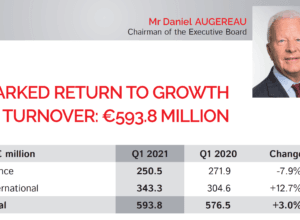Equal Work, Equal Pay: Why It Shouldn’t Be a Controversial Topic


Equal pay is not just a matter of fairness; it’s also a key factor for the sustainability and competitiveness of companies. While it may seem that everyone should receive the same wage for the same work, reality often tells a different story. In the Czech Republic, disparities in remuneration persist across gender, age groups, and other factors. This article focuses on the reasons behind these differences and suggests practical steps to achieve greater equality in the workplace.
The Czech Reality in a European Context
According to the latest Eurostat data, the gender pay gap in the Czech Republic stands at 17.9%, the third-highest disparity within the European Union. Moreover, it’s not just about differences between men and women:
- Employees over 55 years old have lower average wages than their younger colleagues, even with comparable performance.
- Employees with disabilities earn 10–22% less than their colleagues without disabilities.
- Employees of foreign nationality are often placed in undervalued positions despite having appropriate qualifications.
Thus, equal pay is not solely a gender issue but primarily a matter of justice for diverse groups in the labor market.
Meritocracy vs. Fairness: Must They Be at Odds?
Meritocracy suggests: “Everyone has the same chance to succeed, just work hard.” But reality is more complex. For example:
- In the Czech Republic, men typically request 12–15% higher starting salaries than women during recruitment processes.
- Older employees participate less frequently in development programs or career advancements—not due to lack of interest, but because they are often not invited.
- Salaries are often based on previous earnings, which may have been unequal from the outset.
Equal pay doesn’t mean someone receives more “just because of who they are.” It means everyone gets what they truly deserve without hidden obstacles and biases.
What Can Companies Do – Practically and Systematically
Achieving pay equality cannot be established through a one-time decision. It’s a process that requires openness, data analysis, and the courage to change established patterns.
Recommendations that work:
- Pay Audits: Compare wages across groups—not just by gender, but also by age, nationality, or health status.
- Salary Transparency: Implement salary bands and clear growth criteria. This helps build trust.
- Fair Setting of Starting Salaries: Assess candidates based on the value they bring, not their previous earnings.
- Equal Access to Development: Ensure all employees have access to the same growth opportunities.
Equality as a Foundation for Trust and Performance
Equal pay is not a compromise at the expense of performance. On the contrary, companies that actively address it gain:
- Loyal and motivated employees
- An advantage in talent acquisition
- A stronger employer brand
- Lower risk of legal disputes or reputational crises
In an era where equality is becoming part of ESG reporting and labor market expectations, it’s no longer a “nice benefit.” It’s a competitive necessity.
The question isn’t: Why? The question is: Why not yet?
Want to learn more about pay equality and discuss best practices with experts from various fields? Join us at the Sustainable Business Forum: Equal Pay, taking place on June 5, 2025, from 9:00 AM to 2:00 PM at the French Embassy in Prague. This event, organized by the French-Czech Chamber of Commerce, offers a platform for sharing experiences and establishing new partnerships among businesses, public institutions, and academia. Martin Huba, CEO of Synergie CZ&SK, will also be speaking at the forum. For more information and registration, visit the official event page: Sustainable Business Forum: Equal Pay.
This article was prepared in conjunction with Synergie’s participation in the Sustainable Business Forum 2025 in Prague, where we focus on “Equal Pay” as a key component of sustainable employment.








